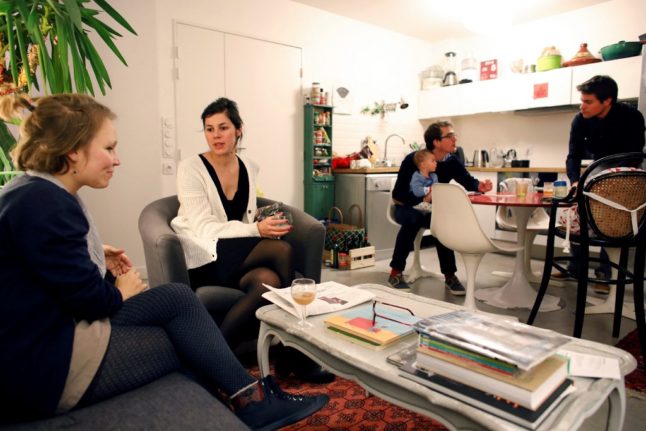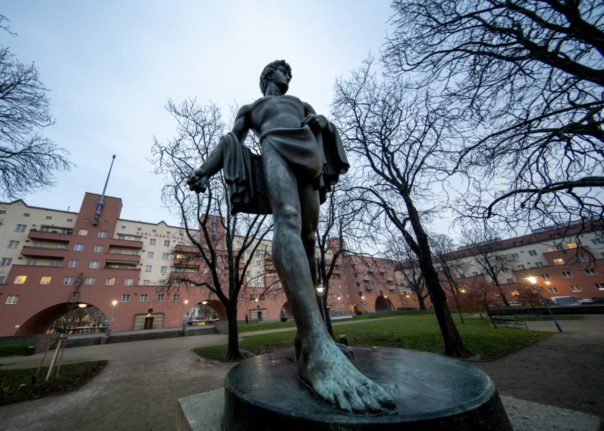Many young people in Spain who can afford to move out of their parent’s house cannot yet afford to buy their own home, with down payments and securing a mortgage two of the biggest problems.
According to FotoCasa six in 10 young people in Spain between the ages of 18 and 34 have tried to buy a property, but without success.
The Emancipation Observatory of the Spanish Youth Council (CJE) adds that currently in Spain 59.2 percent of young people rent, while only 17.4 percent own their own property and pay a mortgage. Data shows that most Spaniards aren’t able to buy their own property until they are 41 years old.
Luckily there are now several government schemes across the country that aim to help young people get on the property ladder. Here are 10 ways that under-35s can get help to buy their first home.
Buying a home in a rural location
The Spanish government introduced a subsidy of €10,800 for those under 35 who wish to purchase a property in towns or villages with less than 10,000 inhabitants, in a bid to help solve the problem of declining rural populations, as well as the issue of young people not being able to afford to buy a home. This is available until December 2022 and can be applied for through the authorities in your region.
Andalusia
Andalusia announced its ‘First Home Programme’ earlier this year, which is independent but runs parallel to the State Housing Plan. It includes aid of up to €10,800 for the acquisition of habitual residence for young people under 35.
Castilla y León
Those in Castilla y León can apply for aid if they want to live in the province of Soria. Aid is available up to 50 percent, up to a maximum of €5,000 to buy in rural areas within the province. People up to the age of 36 can apply. Find out more on how to apply here.
Canary Islands
Young people from the Canary Islands can apply for a housing benefit in 2022 of 20 percent of the cost of the property up to a maximum of €11,000. You are eligible up until the age of 36. Find out more about the aid here.
Galicia
Galicia is giving assistance to those wanting to buy in the historic centres of towns and cities. Those aged 35 and under can get up to €12,800 to help them do this, which in turn will help to revive and rejuvenate the oldest parts of the region. You need to apply here before November 15th in order to be in with a chance.
Madrid
In July 2022, the government of Madrid announced an aid package for young people aged 35 and under. The banks, along with the government of Madrid, will grant mortgage loans for amounts greater than 80 percent and up to 95 percent of the value of the property, provided that the purchase price doesn’t exceed €390,000.
READ ALSO: Why Madrid is now the easiest place in Spain for under-35s to buy their first home
Murcia
The government of Murcia guarantees an aid package of 20 percent, up to €10,850 for those up to the age of 35 who want to buy their own home by getting a mortgage loan. Find out more and apply for the aid here.
Valencia region
In Spain’s Valencia region, the Ministry of Housing and Bioclimatic Architecture aims to help make it possible for young people to buy a home who might not otherwise be able to, as well as help towns and villages that are at risk from de-population. The amount each applicant can get will be 20 percent of the value of the price of a house, up to a maximum of €10,800 per person. The cost of the property cannot exceed €120,000 and it must be your main and permanent home. It is available to those up to the age of 35.
READ ALSO: How young people in Spain’s Valencia region can get €10k to buy a home
Aid for large families
Large families or familias numerosas as they are called in Spanish are defined as families who have four or more children. Large families can also benefit from state aid when buying a property, which is €10,800 as long as it does not exceed 20 percent of the property price. When buying a property, these families can also get help by benefiting from a discount on the payment of the Property Transfer Tax (ITP), up to four percent on second-hand purchases.
Aid for renting
If you can’t yet afford to buy your own property, there are several benefit schemes for young people to be able to move out of their parent’s home and be able to rent instead. The Bono Alquiler Joven allows those between 18 and 35 to get €250 per month to go towards rent and is available across the country. There are various other schemes in different regions too. Find out more and apply here.
Be aware, most of these schemes are only available for certain amounts of time and strictly for those who do not already own a property. There may also be prerequisites on the amount of time you have lived in each region. For example, those wanting to benefit from the aid package in Madrid must have lived in the region for the two years leading up to their application.
There are also certain limits as to the amount you can earn in order to be eligible for the benefit. In Valencia, your income must be equal to or less than three times the IPREM (€6984.24 per year for 2022).



 Please whitelist us to continue reading.
Please whitelist us to continue reading.
Member comments